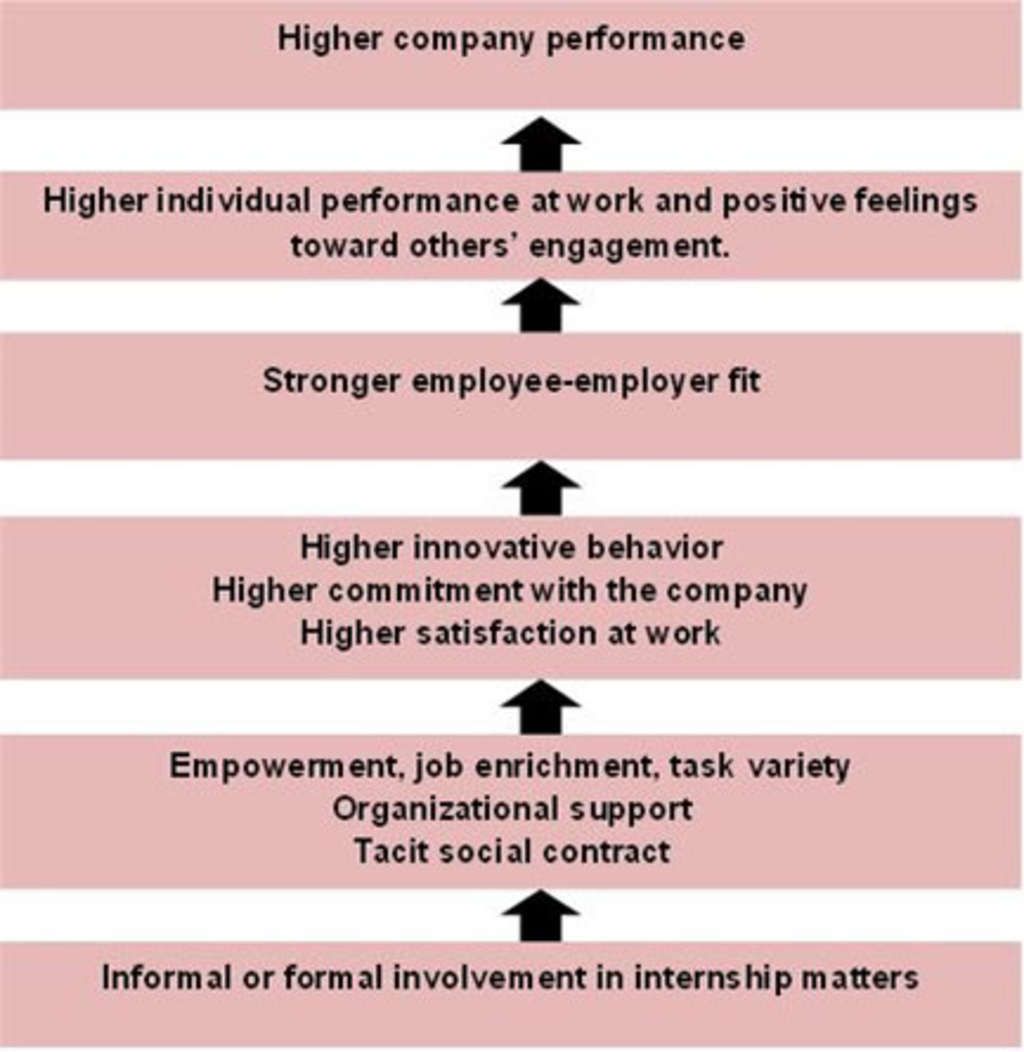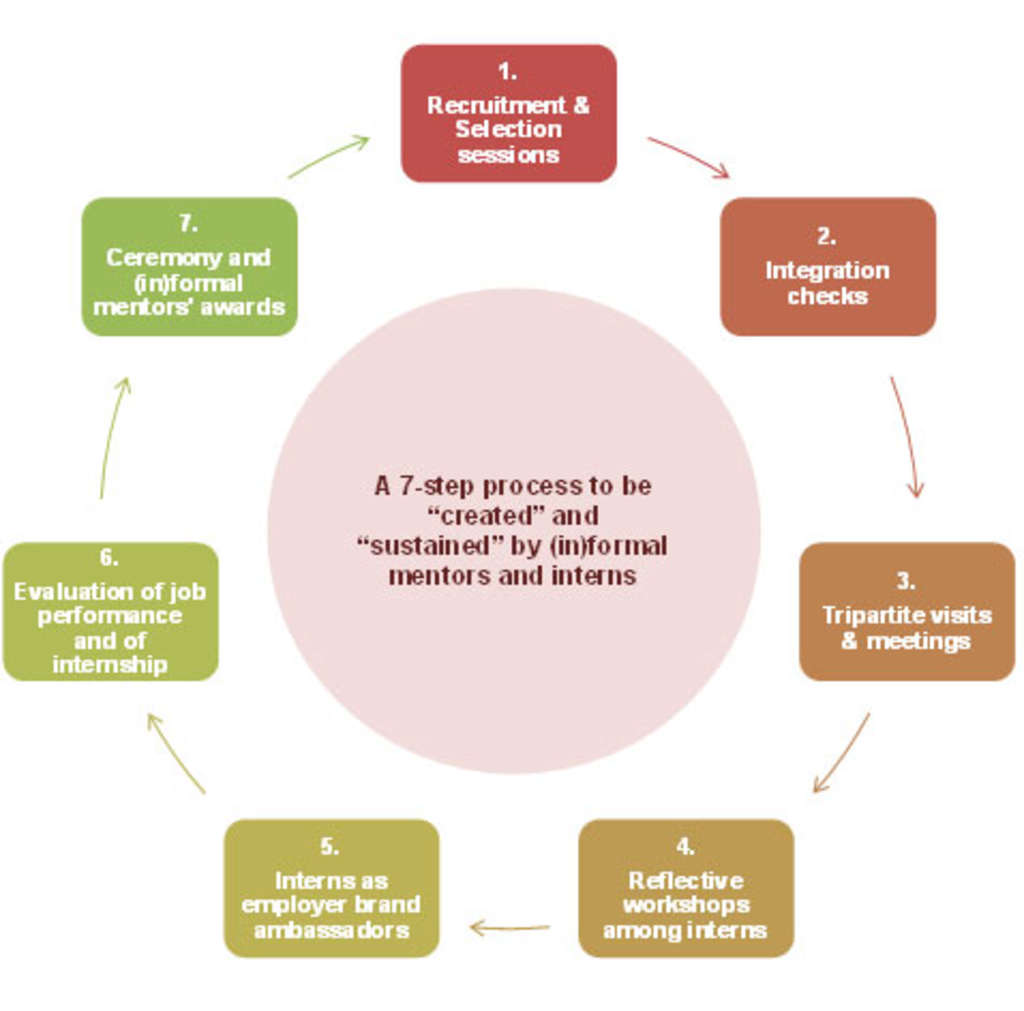Internships: An employer’s booster
In such a labor intensive sector as our hospitality industry, performance depends on human capital. Ironically however, in our industry, staff turnover rates are double and tenure rates are half those of other sectors. To better develop and retain human capital, Stéphanie Pougnet, PhD, believes we should look at the benefits of internships. This article is excerpted from the forthcoming Hotel Yearbook 2016: Talent Development, to be published in March.
By alternating school and workplace, learning and producing, interns construct their experiential capital. Here, we explain how internships are also beneficial to employers, by enhancing the employee-employer fit.
With the purpose of showing that internships contribute to companies' performance, we conducted series of studies in various industries in France, in the restaurant sector in the US, and in four 5-star hotels in Hong Kong.
The results show that whatever their position, (in)formal mentors-employees involved in internship matters show higher job satisfaction, organizational commitment, innovative and flexible behaviors and job performance levels than the employees not committed in internship.
When based upon a well-organized Work-Education Relationship, internship systems build a tacit social contract which binds the intern, the tutor-teacher, the mentor-employee, and the whole employing organization altogether. More strongly than other employees, mentors-employees involved in internship matters feel more empowered, enjoying vertical job enrichment and task variety and believe that they benefit from stronger organizational support.
7-step internships virtuous circle for employers
To make their employees more satisfied, committed, innovative and performing at work, employers should manage internships like a 7-step virtuous circle. First step is to invite mentor-employees to take part in the recruitment and selection of their interns. Second step is to analyze the results of the integration checks that might be done by the tutor-teacher, the mentor-employee and the intern, who should meet face-to-face or online in a third step to share on their mutual expectations and the final outcomes of the internships. In a fourth step, reflective workshops among interns and to which mentors-employees may participate would help benchmarks of best practices. Fifth, interns should be coached by their mentors-employees to be employer-brand ambassadors aiming at attracting talent to their company. A sixth step involves the evaluation by mentors-employees of both the job performance of the intern and the performance of the internship. An awarding ceremony recognizing mentors-employees' contribution constitutes a seven step in the virtuous circle of internship.
To have mentors-employees participating to this 7-step framework, employers must give them more resources or relieve them from constraints, so that interns should not be regarded as an adjustment variable for work overloads in understaffed teams. Anticipating mentors-employees' sources of power might be helpful to make internship matters better fit the company's requirements and not only fit individual isolated interets.
How internship power resources affect the company's performance
There are five power resources that can emerge from internships situations, relating to expertise, rules, means, environment and information.
Some mentors-employees may build on their handling of internship matters to strengthen and widen their professional expertise. We observed that some mentors-employees may either protect the gained expertise to remain the sole expertise owner, which is an individualistic attitude, or share this expertise with the intern and other employees through knowledge management tactics more directed toward the company's overall performance.
If mentors-employees come to create rules and regulations for interns, they may progressively gain credibility to also produce policies and procedures for other kind of staff, and therefore be empowered. In this case, mentoring an intern can become a procedure through which a company may assess and develop leadership potential.
A mentor-employee might be given the opportunity to allocate means to interns they are in charge of, and also get resources and tools from the school the interns come from, e.g. access to academic databases. A tool that did not exist in some of the companies we investigated until it was created for interns because it was required by their schools was the integration check. At the Ecole hôtelière de Lausanne for instance, such integration checks are aimed at evaluating how well an intern had been socialized within the organization. Integration checks enable mentors-employees to benchmark others' best practices to make their interns get a more realistic job preview to better and faster understand the company's strategy, structure, culture and environment. Successful integration checks created for interns can be extended to all newcomers, to improve all socialization processes.
Interactions between mentors-employees involved in internships and their company's stakeholders may also be a powerful source of performance. The visits and meetings that should occur between tutor-teacher, mentor-employee and intern, as well as events and activities organized by the school –e.g. graduating ceremonies, admission juries, and job fairs – create opportunities for a company to keep in touch with the talent pool it wants to attract.
Another vital source of power for companies is the information collected through meetings organized in schools among mentors-employees from different companies that are in coopetition.
How to get the best of internships
To make internships a booster for talent attraction, development and retention, employers should invest in mentors-employees and interns.
Management of internships should constitute a specific key performance indicator (KPI) in the staff appraisal process, not to be diluted with other management responsibilities towards other kind of staff. The ability of evaluating an intern's performance at work should be part of this KPI. Evaluation-grids created by schools to measure interns' job performance and potential for future employment prospects, and which are filled during visits or online interviews between tutor-teachers and mentors-employees should be benchmarked. Taking part in filling them should be an opportunity for all employees who got informally involved in internships matters to be recognized by their employers. Mentoring teams instead of sole mentors should therefore be considered. Many employees who invest their time and energy in coaching, training, socializing, evaluating and guiding interns might feel some lack of organizational justice if only the "official" mentor is awarded for the internship. As we noticed in some companies investigated, some recognition of their involvement can be formalized through a personal gift and an awarding ceremony. If these gifts and awards cannot be taken for granted, are of reasonable monetary value, and change from one cohort of interns to another, then people will not get involved in internship only to get an extrinsic reward but instead, they will do it to share their tips and tricks of the trade and to make the whole team more efficient at work.
Interns themselves can help their companies better attract and retain talent by organizing open days, tours and visits, spreading some viral buzz around the job opportunities that schoolmates should take. Relying on interns as brand ambassadors is a way to better gain future applicants' trust in testimonials of job incumbents from same generation. For small companies, exchange and cross-internship can be organized among establishments, to both enrich the interns' and their mentors-employees' experience while better managing the headcount.
Through internships, both interns and employees involved develop a trade expertise and a professional identity. Investing in internship definitely mean investing in your human capital with high return on investment guaranteed.





